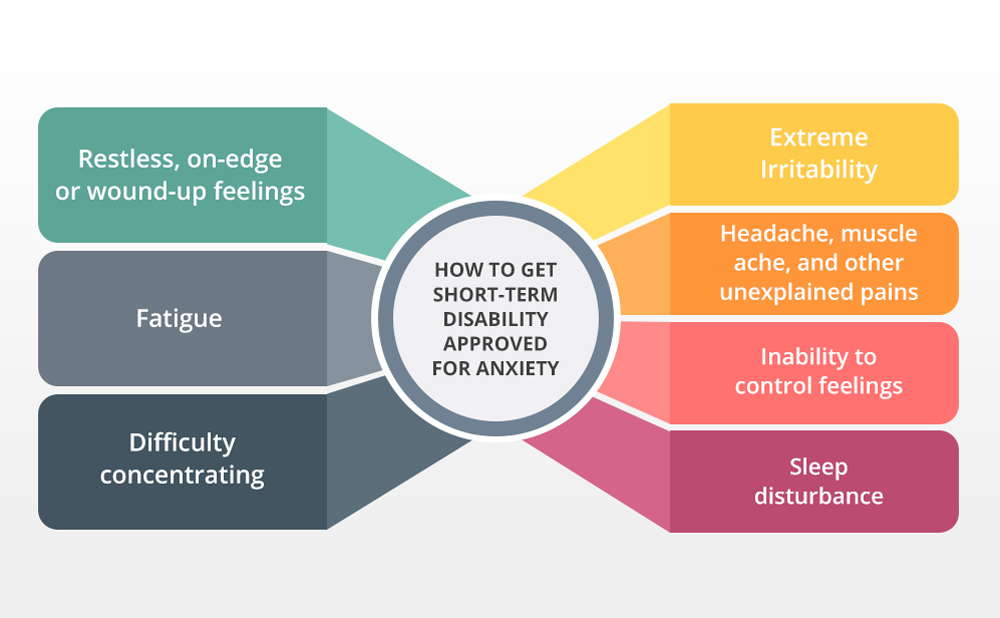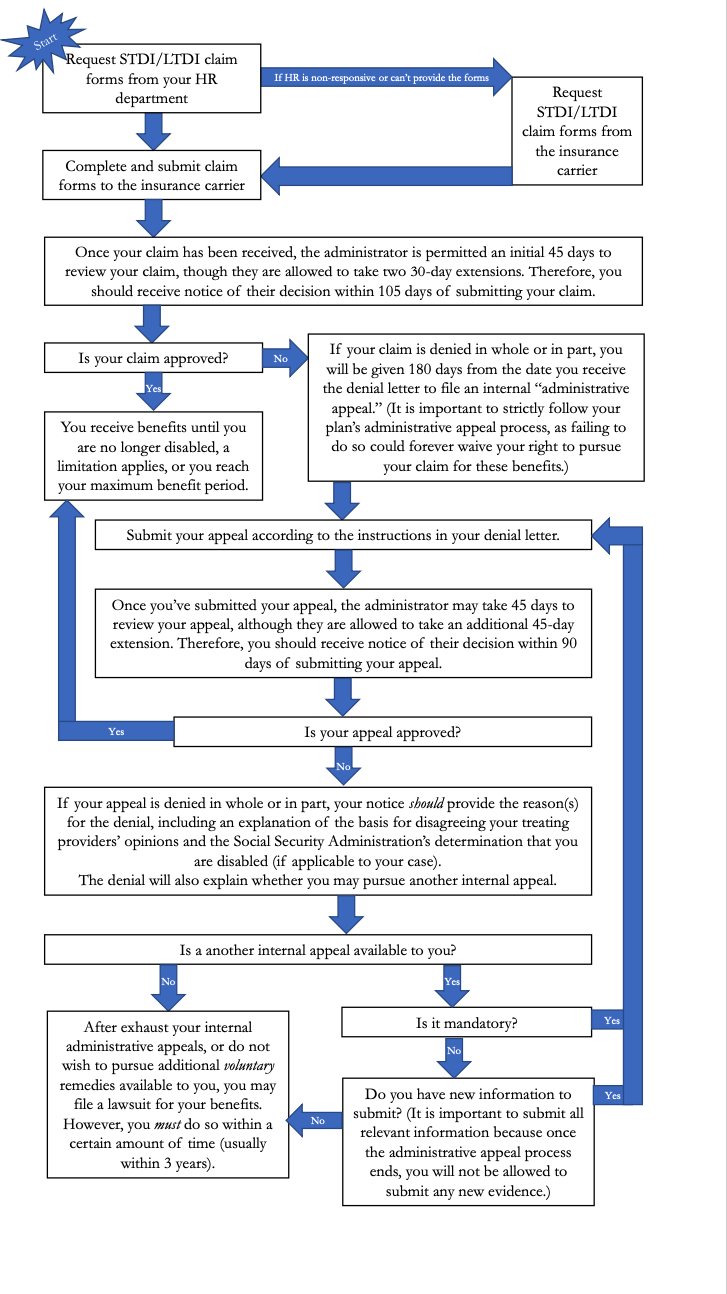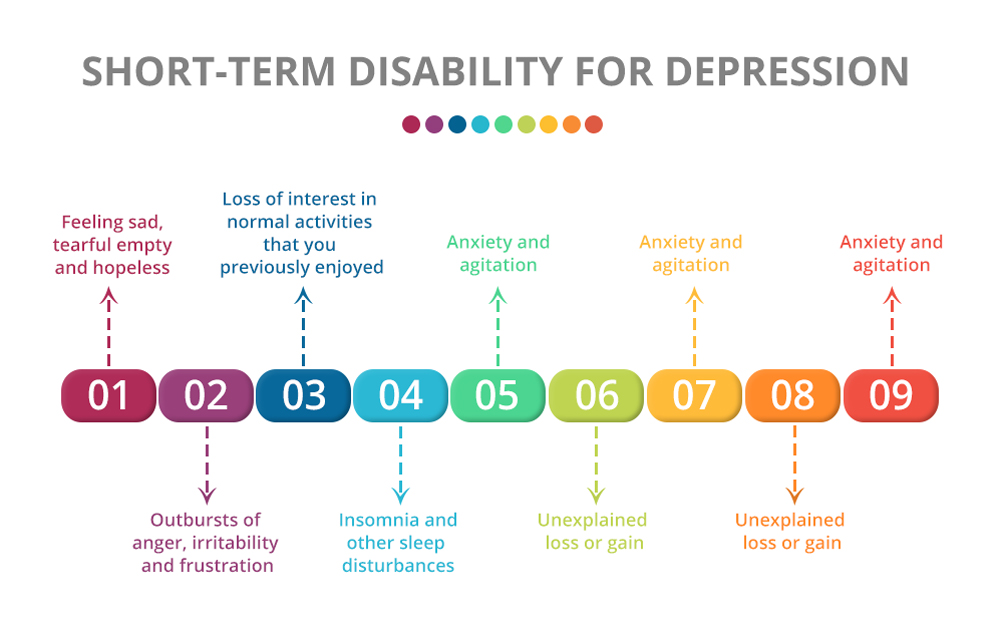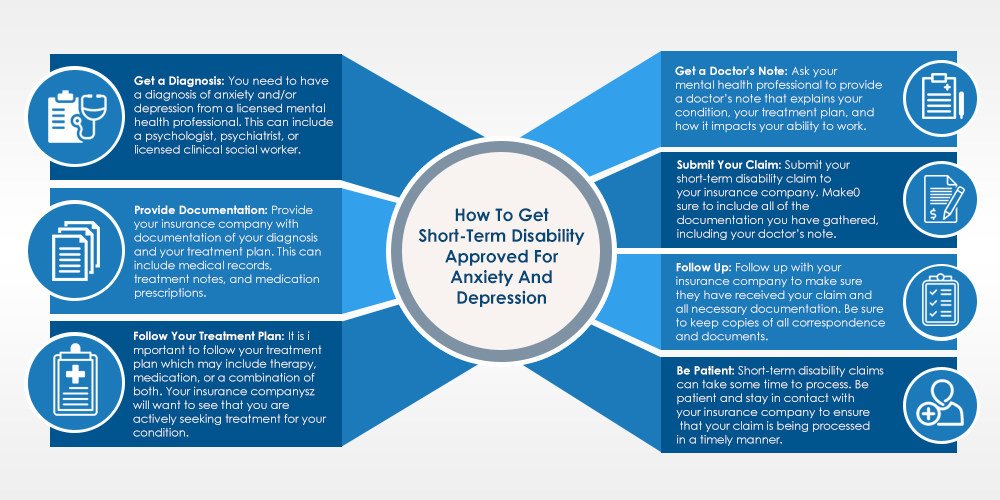Have you ever wondered how your mental health might impact your ability to work and the support you can access during difficult times?
Understanding Short-Term Disability
Short-term disability (STD) typically refers to a specific insurance program designed to provide financial support to individuals unable to work due to temporary disabilities, including mental and emotional health issues. This type of coverage is essential for easing the financial burden you may face when taking time off work to recover.
Understanding what qualifies as a short-term disability can clarify how it impacts your experience. It’s important to note that mental health conditions are just as valid as physical ailments when it comes to obtaining coverage.
What is Short-Term Disability Insurance?
Short-term disability insurance is designed to replace a portion of your income for a set period, usually ranging from a few weeks to several months, while you are unable to work. The first step in understanding this coverage is recognizing that many employers offer it as part of their employee benefits package, though you may also purchase private plans.
Key Features of Short-Term Disability Insurance
- Duration of Coverage: STD plans typically cover you for a period of up to six months, though this can vary by policy.
- Coverage Amount: Most STD policies pay around 60-80% of your regular salary, providing some financial relief when you are unable to work.
- Eligibility Requirements: Generally, to qualify for benefits, you must demonstrate that you are unable to perform your job duties due to a qualifying condition.
The Role of Mental Health in Short-Term Disability Claims
Mental health plays a crucial role in the discussion of short-term disability. Conditions such as anxiety disorders, depression, PTSD, and others can severely impact your ability to perform daily tasks, including your job responsibilities. Therefore, these conditions can often qualify you for benefits under a short-term disability plan.
Common Mental Health Conditions That May Qualify
| Condition | Description |
|---|---|
| Depression | A mood disorder characterized by persistent sadness, loss of interest, and other emotional and physical problems. |
| Anxiety Disorders | Conditions that cause excessive worry or fear, impacting daily functioning. Examples include generalized anxiety disorder and panic disorder. |
| Post-Traumatic Stress Disorder (PTSD) | A disorder that can develop after experiencing or witnessing a traumatic event, leading to anxiety, flashbacks, and other symptoms. |
| Bipolar Disorder | A mental illness that causes extreme mood swings, including emotional highs (mania) and lows (depression). |
How to Apply for Short-Term Disability for Mental Health Reasons
Applying for short-term disability due to mental health can feel daunting, but understanding the process can help. Familiarize yourself with the following steps:
- Document Your Condition: Keep detailed notes about your symptoms, their impact on your daily life, and your ability to work.
- Consult a Mental Health Professional: It’s essential to seek support from a licensed therapist or psychiatrist who can diagnose your condition and provide recommendations. Their documentation will be pivotal in your claims process.
- Review Your Company’s Policy: Each employer may have unique procedures for applying for STD benefits. Familiarize yourself with these details to ensure you follow the correct steps.
- Complete the Claim Form: Fill out the required forms, providing as much detail as possible about your mental health condition and its effects on work.
- Submit Your Application: Once everything is gathered, submit your application according to your employer’s specified procedures. Keep copies for your records.
Essential Documentation for Your Claim
Robust documentation can make a significant difference in the approval of your short-term disability claim. Consider preparing the following documents:
| Document | Purpose |
|---|---|
| Medical Documentation | Reports from your healthcare provider detailing your diagnosis, treatment, and limitations. |
| Personal Statement | A letter outlining your experiences, symptoms, and their impact on your work and daily life. |
| Treatment Records | Documentation of your ongoing treatment, including therapy sessions and medication prescriptions. |
| Employer’s Statement | Information regarding your job responsibilities and an assessment of your ability to perform your job duties. |
Managing Your Mental Health During STD Leave
Taking a break from work can be an essential move toward recovery. During this period, focusing on your mental health is paramount. Consider the following tips:
Establish a Support System
Reaching out to friends, family, or support groups can provide encouragement and motivation during your recovery. Sharing your experiences with others who understand can alleviate feelings of isolation.
Stick to a Routine
Creating a daily schedule can help you maintain a sense of normalcy, even while resting. This may also benefit your mental health by providing structure to your day.
Engage in Therapy
Regular sessions with a therapist can help you unpack your feelings and develop coping strategies to manage your condition. Consider discussing your treatment goals and progress with them openly.
Incorporate Healthy Habits
Focusing on nutrition and physical activity can positively impact your mental wellness. Small changes, like eating balanced meals and incorporating gentle movements, may enhance your mood.
Potential Challenges and How to Overcome Them
While taking advantage of short-term disability for mental health reasons is a necessary step, it can also come with challenges. Here are some common issues and solutions.
Stigma Around Mental Health
There can often be a stigma associated with mental health issues, which may become magnified when navigating the disability application process. Remember, prioritizing your health is a sign of strength, not weakness. Surround yourself with supportive individuals who validate your struggles.
Fear of Losing Your Job
It is natural to worry about job security while taking leave for mental health reasons. Most laws protect employees who take medical leaves, so familiarize yourself with the Family and Medical Leave Act (FMLA), which may apply in your situation. You can rest assured knowing that you are taking the appropriate steps for your well-being.
Difficulty with Application Process
The application process can be overwhelming, especially in the midst of mental health challenges. Don’t hesitate to seek assistance from human resources or a legal professional experienced in disability claims if you encounter difficulties.

This image is property of www.londoneligibility.com.
Supporting a Colleague on Short-Term Disability
Sometimes, you may find yourself in a position to support a friend or colleague going through the short-term disability process because of mental health issues. Your support can be vital in their journey.
How to Show Support
- Reach Out: Offer a listening ear or just let them know you’re thinking of them. Simple gestures can often uplift spirits.
- Be Understanding: Everyone’s experience with mental health is different. Try to be empathetic and understanding of their unique situation.
- Maintain Connection: Stay in touch, if they’re comfortable, by checking in through messages or calls. Loneliness can be a significant challenge during this time.
- Encourage Self-Care: Gently remind them to engage in activities they enjoy and prioritize their well-being.
Communicating While on Leave
It is essential to establish boundaries while on leave. However, remaining open to communication with your employer, if you feel ready, can help ease the transition back to work.
Set clear boundaries regarding how and when they can reach you. You might choose to only respond to specific questions or concerns.

This image is property of www.hq-law.com.
Returning to Work After Short-Term Disability
Once you start feeling ready to return to work, addressing your overall readiness holistically is essential.
Assessing Your Readiness
Consider the following questions as you prepare to return:
- Am I feeling significantly better? Reflect on your mental health progress and whether you feel equipped to handle work-related stressors.
- Have I established adequate coping strategies? Before returning, ensure you have tools to manage stress effectively, whether through therapy, self-care, or support systems.
- Is my work environment supportive? Consider whether your workplace culture will support your mental health needs as you transition back.
Communicating with Your Employer
Once you feel prepared to discuss your return with your employer, here are some tips for navigating the conversation:
- Be Honest: Share your journey and any insights you’ve gained during your time off. Highlight how you are better equipped to handle your workload.
- Discuss Accommodations: If needed, outline any accommodations that could help ease your transition back to work, such as flexible hours or a gradual return.
- Set Boundaries: Communicating your boundaries early on can create an understanding environment, allowing you to maintain your mental wellness as you resume working.
Adjusting Back to Work Life
Adapting back to your work life can take time, so practice patience with yourself. Start by gradually integrating yourself into your routine. You might want to consider the following steps:
- Ease in with a Part-Time Schedule: If permitted, consider working part-time initially, allowing yourself to build stamina gradually.
- Check-In With Your Supervisor: Keeping lines of communication open with your supervisor may help you communicate any challenges you face as you readjust.
- Prioritize Self-Care: Make it a habit to engage in self-care activities that help you recharge after work. This could range from exercise to creative pursuits.

This image is property of www.londoneligibility.com.
Conclusion: Prioritizing Mental Health Is Essential
Your mental health deserves attention and care, just like any other aspect of your health. When life throws challenges your way, short-term disability can provide you with financial relief and the time you need to heal. By understanding the process and preparing yourself adequately, you position yourself for success and well-being.
Remember, taking time off isn’t just about stepping away from your job; it’s about giving yourself the necessary space to recover and ultimately thrive in both your personal and professional life. You are worthy of care and support.

This image is property of sackettlaw.com.